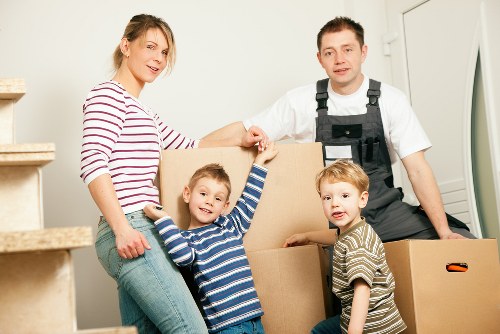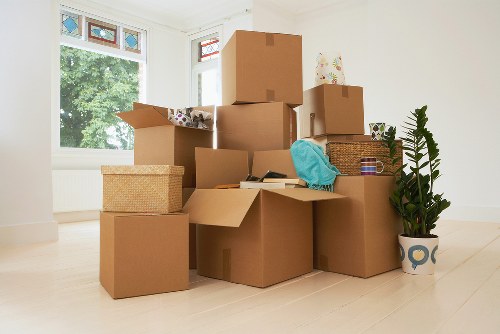White Goods Recycle Bracknell Forest

Recycling white goods is a crucial aspect of maintaining a sustainable environment in Bracknell Forest. White goods, which include large household appliances like refrigerators, washing machines, and dishwashers, have a significant impact on our environment when disposed of improperly. By recycling these appliances, residents of Bracknell Forest can reduce waste, conserve resources, and promote a greener community.
Bracknell Forest offers several facilities and services dedicated to recycling white goods. These services ensure that old appliances are handled responsibly, preventing harmful materials from entering landfills. Additionally, recycling centers in the area are equipped to recover valuable materials, such as metals and plastics, which can be reused in the manufacturing of new products.
One of the primary benefits of recycling white goods is the reduction of energy consumption. Manufacturing new appliances requires a significant amount of energy and raw materials. By recycling, we can decrease the demand for new resources, leading to lower energy usage and a smaller carbon footprint.

Why Recycle White Goods in Bracknell Forest?
Recycling white goods in Bracknell Forest is essential for several reasons. Firstly, it helps in reducing the volume of waste sent to landfills, which is a growing concern worldwide. Landfills not only take up valuable land but also contribute to environmental pollution through the release of methane gas and other harmful substances.
Secondly, recycling supports the local economy by creating jobs in the recycling and manufacturing sectors. It also promotes the development of sustainable practices within the community, encouraging residents to adopt more environmentally friendly habits.
Moreover, Bracknell Forest is committed to achieving its sustainability goals. Recycling white goods aligns with these objectives, helping the area move towards a more sustainable and eco-friendly future.

The Recycling Process
Collection
The first step in recycling white goods is the collection process. Residents can schedule pickups or drop off their old appliances at designated recycling centers within Bracknell Forest. Ensuring that appliances are collected safely and efficiently is crucial to the overall recycling process.
Sorting and Dismantling
Once collected, white goods are transported to recycling facilities where they are sorted based on their type and condition. Skilled workers dismantle the appliances, separating different materials such as metals, plastics, and glass. This separation process is vital for effective recycling.
Processing
The separated materials are then processed for reuse. Metals like steel and aluminum are melted down and purified, while plastics are shredded and recycled into new products. Glass components are cleaned and recycled, reducing the need for raw materials.

Benefits of Recycling White Goods
- Environmental Protection: Prevents harmful substances from polluting the environment.
- Resource Conservation: Reuses valuable materials, reducing the need for new resources.
- Energy Savings: Lower energy consumption compared to producing new appliances.
- Economic Advantages: Creates jobs and supports the local economy.
- Compliance with Regulations: Adheres to local and national waste management laws.

Local Recycling Facilities
Bracknell Forest is home to several reputable recycling centers that specialize in white goods. These facilities are equipped with modern technology to handle large appliances efficiently. Employees are trained to manage the recycling process meticulously, ensuring that every component is correctly processed.
Residents can choose from various recycling options, including scheduled pickups, drop-offs, and even special collection events organized periodically. These services make it convenient for everyone to participate in recycling efforts.
The accessibility of recycling centers in Bracknell Forest encourages more residents to recycle their white goods, fostering a community-wide commitment to environmental sustainability.

Recycling Guidelines
To ensure that white goods are recycled effectively, Bracknell Forest has established certain guidelines for residents:
- Preparation: Disconnect and clean appliances before disposal.
- Sorting: Separate appliances by type to facilitate the recycling process.
- Documentation: Provide proof of ownership if required by the recycling center.
- Safety: Handle sharp or heavy components with care to prevent injuries.
- Compliance: Follow all local regulations and guidelines for recycling.

Nearby Areas for White Goods Recycling
Residents of Bracknell Forest have access to white goods recycling services not only within their immediate area but also in several nearby locations. These areas offer additional facilities and options for convenient recycling:
- Binfield: Located just north of Bracknell Forest, Binfield offers several recycling centers with extended hours.
- Wokingham: A short drive south provides access to state-of-the-art recycling facilities that handle a high volume of white goods.
- Ascot: Known for its efficient recycling programs, Ascot ensures that white goods are processed promptly and responsibly.
- Emmer Green: This area provides specialized services for recycling larger appliances and offers pickup options.
- Little Princes Risborough: Residents can access recycling centers that support both homeowners and businesses.
- Finchampstead: With multiple recycling points, Finchampstead makes it easy for residents to dispose of white goods.
- Warfield: Offers community-driven recycling initiatives that encourage participation from local residents.
- Sonning: Known for its environmentally friendly practices, Sonning provides comprehensive recycling services.
- Twyford: Twyford’s recycling centers are equipped to handle a variety of white goods efficiently.
- Madeley: Provides convenient drop-off locations and scheduled pickups for white goods.
- Langley: Langley’s recycling facilities support sustainable waste management practices.
- Finchampstead: Offers additional resources and support for residents looking to recycle white goods.
- Sonning Common: A hub for local recycling efforts, Sonning Common ensures that white goods are recycled properly.
- Streatley: Provides easy access to recycling services for residents and businesses alike.

How to Schedule a Pickup
Scheduling a pickup for white goods recycling in Bracknell Forest is straightforward. Here’s how you can arrange a pickup:
- Contact the Recycling Center: Reach out to your local recycling center via phone or their official website.
- Provide Details: Inform them about the type and number of appliances you wish to recycle.
- Choose a Date: Select a convenient date and time for the pickup.
- Prepare Appliances: Ensure that the white goods are ready for collection, disassembled if necessary, and free from personal items.
- Confirm the Appointment: Verify the pickup details to avoid any misunderstandings.

Cost of Recycling White Goods
Recycling white goods in Bracknell Forest is often free of charge, especially when arranged through municipal services. However, some recycling centers may charge a small fee depending on the type and size of the appliance. It’s advisable to check with the specific recycling facility for any associated costs.
In some cases, there may be incentives or discounts for residents who participate in regular recycling programs. These incentives encourage more people to recycle and contribute to the community’s sustainability efforts.

Environmental Impact
The environmental benefits of recycling white goods are substantial. By recycling, we reduce the demand for new raw materials, which in turn decreases mining and extraction activities that harm ecosystems. Additionally, recycling conserves energy, as producing new materials from recycled ones generally requires less energy than manufacturing from scratch.
Furthermore, recycling helps to minimize greenhouse gas emissions. Manufacturing new appliances emits significant amounts of CO2, whereas recycling existing appliances produces fewer emissions, contributing to climate change mitigation efforts.
Reducing Landfill Waste
Landfills are becoming increasingly overburdened, and managing waste is a growing challenge. By recycling white goods, we divert large and bulky items from landfills, preserving space and reducing environmental pollution. This practice ensures that landfills remain manageable and that the surrounding environment remains clean and healthy.

Community Involvement
Community involvement is key to the success of white goods recycling programs in Bracknell Forest. Local organizations, schools, and businesses can collaborate to promote recycling initiatives, educate residents, and provide resources for effective recycling practices.
Organizing events such as recycling drives, educational workshops, and awareness campaigns can significantly increase participation rates. These activities not only inform the community about the importance of recycling but also make the process more accessible and engaging.
Encouraging residents to take part in recycling efforts fosters a sense of responsibility and empowerment, leading to a more environmentally conscious community.

Tips for Effective Recycling
- Plan Ahead: Schedule pickups or drop-offs in advance to ensure timely recycling.
- Properly Clean Appliances: Remove any food residues or personal items from appliances before recycling.
- Follow Guidelines: Adhere to the recycling center’s guidelines for preparing white goods.
- Separate Components: If possible, separate recyclable parts to streamline the recycling process.
- Stay Informed: Keep up-to-date with local recycling policies and updates.

Future of White Goods Recycling
The future of white goods recycling in Bracknell Forest looks promising, with ongoing advancements in recycling technologies and increasing community engagement. Innovations in recycling processes will make it easier and more efficient to recycle complex appliances, reducing costs and improving outcomes.
Moreover, as awareness about environmental issues grows, more residents are likely to participate in recycling programs. Educational initiatives and incentives will play a crucial role in maintaining and increasing participation rates.
Bracknell Forest aims to lead by example in sustainable waste management, setting benchmarks for other communities to follow. With continued support and investment, white goods recycling will remain a key component of the region’s environmental strategy.

Conclusion
Recycling white goods in Bracknell Forest is a vital practice that benefits the environment, the economy, and the community. By responsibly disposing of old appliances, residents contribute to reducing waste, conserving resources, and promoting sustainability.
With accessible recycling facilities, clear guidelines, and community support, Bracknell Forest is well-equipped to handle the challenges of white goods recycling. Everyone has a role to play in making recycling successful, and by working together, we can ensure a cleaner, greener future for our region.
Take action today by recycling your old white goods and encouraging others to do the same. Together, we can make a significant impact on our environment and create a sustainable legacy for future generations.
Frequently Asked Questions
1. What are white goods?
White goods refer to large household appliances such as refrigerators, washing machines, dishwashers, and ovens. These appliances are typically made of steel and other metals, which are recyclable.
2. How can I recycle my old refrigerator in Bracknell Forest?
To recycle your old refrigerator, you can schedule a pickup through your local recycling center or drop it off at a designated recycling facility in Bracknell Forest. Ensure the appliance is clean and free from personal items before disposal.
3. Is there a cost associated with recycling white goods in Bracknell Forest?
Recycling white goods is often free of charge through municipal services. However, some recycling centers may charge a small fee depending on the type and size of the appliance. It’s best to check with your local facility for specific information.
4. What materials are recovered from recycled white goods?
Recycling white goods allows for the recovery of valuable materials such as metals (steel, aluminum), plastics, and glass. These materials are then processed and reused in the manufacturing of new products.
5. Why is recycling white goods important for the environment?
Recycling white goods helps reduce waste in landfills, conserves natural resources, lowers energy consumption, and decreases greenhouse gas emissions. It plays a significant role in promoting environmental sustainability.